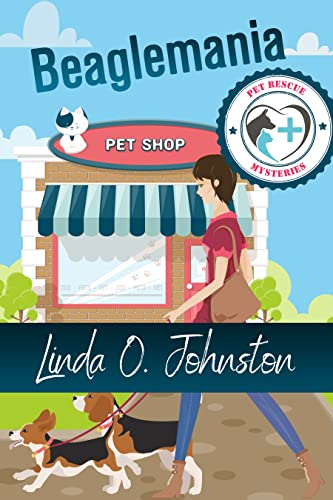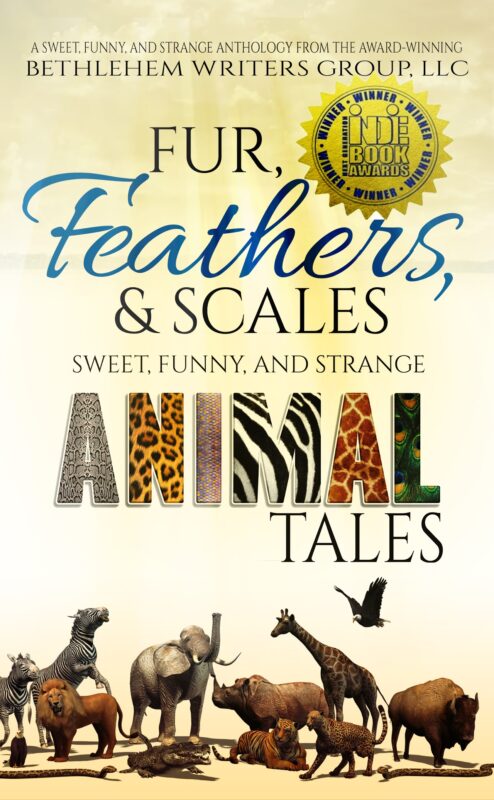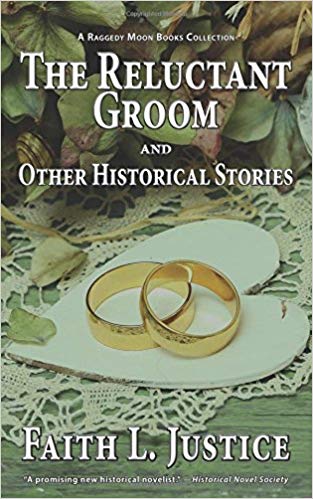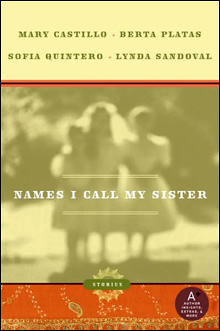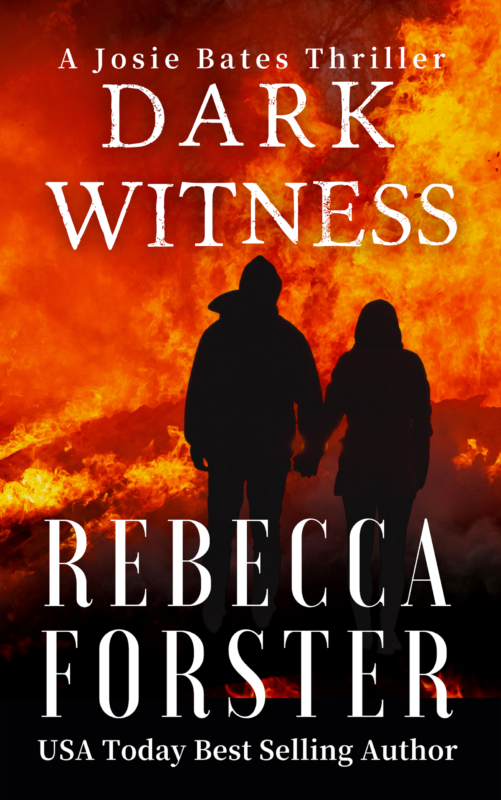How to Finish Your Book and Keep Your Day Job: Protect your writing time like a mother protecting her young
November 3, 2020 by Janet Elizabeth Lynn and Will Zeilinger in category Partners in Crime by Janet Elizabeth Lynn & Will Zeilinger tagged as How to finish your book and keep your day job?, Planning, Writing Advice, writing time
How to finish your book and keep your day job?
Protect your writing time like a mother protecting her young
Writing a book is a work of love. However, things get in the way, i.e. work. We all dream of the day when we can make enough money to survive by writing. Until that day comes (if it ever does), we need to keep our full time jobs. We wrote and published our first five books working full time.
Time management is nothing to joke about when trying to write and support yourself or family with a full time job. Find the gaps in your schedule or day and use them to the fullest. Guard them and don’t let anything get in the way of your writing time. This is why scheduling writing time works so well. You can plan around the time.
We write between 6:00- 8:00 every morning. The only thing that keeps us from not writing is a fever of over 102. For us this is the best time because our day has not yet begun and we can focus on writing after a good night’s sleep. Pick a time of day where interruptions are at its minimum and plan it. We also clear our desks and have everything we need to write (on the desk) so we don’t need to get up. So just plan ahead.
Keep up the good writing.
Janet and Will
Chatting with Authors
Will Zeilinger and Janet Elizabeth Lynn created “Chatting With Authors.” This channel features informal interviews with authors of varied genres, produced via Zoom, and aired every Friday. Head over to YouTube and listen.
Andi Lawrencovna, Fantasy Author, takes us to the dark side of her Fairy Tales!!
November 2, 2020 by Jann Ryan in category Jann says . . . tagged as ANDI LAWRENCOVNA, fantasy romance, Twisted Fairytales Andi Lawrencovna is a fantasy and science fiction writer from Ohio. Her most recent books, A Charming Series, the first in her Never Lands Saga, is a re-envisioning of Cinderella with a darker twist. Andi works closely with WriteNow Publishing though maintains her independent authorship. She currently has three novels and two short story to her name, and her next novel, So Sweet, will be out later this year. So Sweet is a tale as old as time, whose characters are as equally ancient and waiting to be released. Happily-Ever-Afters have never been bleaker, though Andi promises there’s always hope for rainbows and unicorns in The Never Lands.
Andi Lawrencovna is a fantasy and science fiction writer from Ohio. Her most recent books, A Charming Series, the first in her Never Lands Saga, is a re-envisioning of Cinderella with a darker twist. Andi works closely with WriteNow Publishing though maintains her independent authorship. She currently has three novels and two short story to her name, and her next novel, So Sweet, will be out later this year. So Sweet is a tale as old as time, whose characters are as equally ancient and waiting to be released. Happily-Ever-Afters have never been bleaker, though Andi promises there’s always hope for rainbows and unicorns in The Never Lands.
Andi currently resides in Northeast Ohio with her dog and an imagination that has gotten her into more trouble than not. Her education includes a BA in English from Denison University and an MFA in Creative Writing from Pine Manor College. She works as a legal secretary during the day and removes her glasses at night…wrong genre. For more information on Ms. Lawrencovna and her work, please visit her website at: www.AndiLawrencovna.com
Are you ready for a walk on the dark side? We’re here today talking with Fantasy Author, Andi Lawrencovna, who takes Fairy Tales in a whole new direction.
Jann: Who’s the Fairest?: A Sisters Grimm Anthology—Andi Lawrencovna, Rochelle Bradley, Isobelle Cate, Hope Daniels & Alica Dawn, Jennifer Daniels, SE Winters, Genevieve Gornichec, Shaunna Rodriguez and Kali Willows. What a lineup of authors. Can you tell us about how you and your fellow authors came together to produce this anthology?
Andi: It was actually my idea. I love rewriting fairy tales and wanted to get a group of people together to create a collection of them. The “Brothers Grimm” seemed liked a great place to start, lending their stories to dark and twisty and with this “romantic” old-worldly feel to them. Granted, we wanted to kind of modernize them a bit, but the stories in the anthology all have the fairy tale aspects that we loved as kids.
a group of people together to create a collection of them. The “Brothers Grimm” seemed liked a great place to start, lending their stories to dark and twisty and with this “romantic” old-worldly feel to them. Granted, we wanted to kind of modernize them a bit, but the stories in the anthology all have the fairy tale aspects that we loved as kids.
Jann: How did you each select your tale?
Andi: Oh boy…well, I’m a bit of a control freak… I found a bunch of Grimm fairy tales that I thought would be fun to “retell” because not many people had done them before, so I created a list of some to choose from. Mind you, the Brother Grimm wrote hundreds of stories, and we didn’t even comb through nearly half of them, but we had fun choosing through the list I compiled.
Jann: What can readers expect to find when they read this anthology?
Andi: It is a truly amazing compilation of stories and storytellers. I personally write more traditional fantasy novels that harken back to the feel of the original Grimm stories. Some of the authors in the set are more paranormal romance authors, so their pieces are set in modern times, giving the classic tales a modern uplift! There are stories of romances, stories of friendships, a whole bunch of emotions that delve deeper into the characters than the Brothers Grimm ever went. All of us are really excited about the stories that have come out of this project.
Jann: Tell us abut your contribution, The Snake’s Leaves, in the anthology.
 Andi: I went “really” far abreast in coming up with my title. The original story by the Brothers Grimm was called “The Three Snake Leaves.” It was a story of a man who loved his wife, who didn’t love him in return. But it was another of those stories of “love at first sight,” like Cinderella, but this time, we got to see a bit of what came after. Unlike the other stories though, my Grimm retelling has a lot more to do with the “what came before,” and why it all happened the way it did. I honestly love the way it came out, have fallen in love with the characters, and hope others do too.
Andi: I went “really” far abreast in coming up with my title. The original story by the Brothers Grimm was called “The Three Snake Leaves.” It was a story of a man who loved his wife, who didn’t love him in return. But it was another of those stories of “love at first sight,” like Cinderella, but this time, we got to see a bit of what came after. Unlike the other stories though, my Grimm retelling has a lot more to do with the “what came before,” and why it all happened the way it did. I honestly love the way it came out, have fallen in love with the characters, and hope others do too.
Jann: Your website is beautiful. You also have such a variety of books and short stories—The Never Lands Saga, Fairy Tales Reimagined, Breath of Fyre and Petits Vignettes. You write Fantasy with a twist. What motivated you to take these fairy tales to the dark side?
Andi: I guess it goes back to this anthology set too, but I’ve always missed having “more” to my fairy tales. I grew up on them. Loved them. Play acted them as a child. But there was so much untold in them. In school, when we talked about “storytelling” and building well-rounded narratives, it occurred to me that all the fairy tales of my childhood were missing the depth of the novels and the stories I had fallen in love with as an adult. And I wanted to give those fairy tale stories the love I’d found in other novels over the years, and make them a bit my own, I’ll be honest.
Jann: Coming soon is Book One of the The Shado Spun Trilogy, The Foresworn King. What can you tell the readers about this novel?
Andi: Secrets secrets…Oh fine, I’ll share a bit. The Foresworn King is the next installment in the NeverLands Saga and starts off the next generation of “fairy tales” in a sense. Rumpelstiltskin, and The Little Mermaid, and Sleeping Beauty…if I were a betting (wo)man, I’d bet you ain’t seen nothing like these before! And that’s all I’m saying on the matter! Lol.
Jann: What do you want the readers to come away with after reading your novels and short stories?
Andi: I hope that after they read them, they’ve fallen a little bit in love with the stories, with the new stories that I created. They’re no longer the fairy tales we know, and I think a part of me has always known that, but I hope it brings a little fantasy, a little memory, and a little bit more completion to the stories we heard as children, and maybe creates new stories to love as adults.
Jann: What’s the best writing advice you ever received?
Andi: Don’t write for anyone else but yourself. You’re not going to get rich writing that way, but it’s the truest way to stay authentically you. Write what you love, and if you don’t know what you’re writing, research it until you do. Write what you want.
Jann: What’s the worst?
Andi: Write what you know. If you wanna write about a murderer, then you should go out an murder someone and get thrown in jail to really feel what it’s like…That just doesn’t seem all that practical to me. That was followed up closely with: “Men don’t cry. They drink beer and eat cookies.” To which I’ve responded by having a man cry at least once in nearly every story I write.
Jann: In your books, who is your favorite character and why?
Andi: This changes with each book I write. BUT, at the moment, I think my favorite character is Eskild and Jaias…Oh, you said character, not couple, my bad…but I can’t decide between them. They get introduced in “A Thief in the Night” and have their sequel coming up soon and I just love their story line together and apart. Two of my favorites, for sure.
Jann: What sound or noise do you love?
Andi: I LOVE the sound of rain falling. Storm. Drizzle. Doesn’t matter, I love the sound of rain.
Jann: What profession other than your own would you love to attempt?
Andi: I think I would want to be a nurse. I enjoy science and learning medical things and helping people, and I just think being a nurse would be a great way to do that.
Jann: What profession would you hate to do?
Andi: A nurse…as much as I would love to be one, I am also deathly afraid of the level of knowledge you have to remember to be one, and I don’t have the best of memories and I wouldn’t want to risk anyone’s life because of my uncertainty. Though I still think it would be and is an amazing career.
Jann: What is your favorite word?
Andi: Oh….I don’t think I can answer this one politely. It’s a “really bad word,” and I don’t necessarily like it for the word itself but for the way it’s used – the sound of it. I am talking about the “f” word here. Think of all the ways that people have adapted to using it. The harsh “ck” at the end of it lends the word this “pop” of emotion even when it’s just being said in a “friendly, unbelligerent manner.” And the number of meaning that we’ve attributed to it is simply astonishing. But I’m not going to say it “out loud” (or typed, as it were) here.
Jann: What’s the funniest (or sweetest or best or nicest) thing a fan ever said to you?
Andi: This is going to sound random, but I was reconnecting with a college friend and we were talking about what we’d been up to and I said I’d just published “Charming.” She stopped the conversation. Said: “What?” So I said I’d published Charming again, and her response was: Oh my God! I just read that! I loved it. I didn’t know that was you!” And it was true genuine enjoyment in her voice. For someone who knows me, but didn’t “know that part of me,” to say they loved my work, meant a lot to me. That’s the nicest thing anyone has ever said.
Andi, it has been great to have this time with you. Your take on fairy tales is so intriguing. I know I want to take a walk on the dark side!!
A Few Books by Andi Lawrencova
Tracy Reed: November Featured Author
November 1, 2020 by A Slice of Orange in category Apples & Oranges by Marianne H. Donley, Featured Author of the Month tagged as Beautiful Men, fashion, Sophisticated Romance, the Big Apple, Tracy Reed
Author: Tracy Reed

A California native, novelist Tracy Reed pushes the boundaries of her Christian foundation with her sometimes racy and often fiery tales.
After years of living in the Big Apple, this self proclaimed New Yorker draws from the city’s imagination, intrigue, and inspiration to cultivate characters and plot lines who breathe life to the words on every page.
Tracy’s passion for beautiful fashion and beautiful men direct her vivid creative power towards not only novels, but short stories, poetry, and podcasts. With something for every attention span.
Tracy Reed’s ability to capture an audience is unmatched. Her body of work has been described as a host of stimulating adventures and invigorating expression.
Books by Tracy Reed
Dear Extra Squeeze Team, Should I Quit Writing?
October 31, 2020 by The Extra Squeeze in category The Extra Squeeze by The Extra Squeeze Team tagged as Dear Extra Squeeze Team, inspiration, Should I Quit Writing, The Extra Squeeze Team, Writing Advice, writing help
Dear Extra Squeeze Team,
It feels like the entire world is telling me to quit writing…is this normal and what should I do? Should I quit writing?

Rebecca Forster
USA Today Bestselling author of 35 books, including the Witness series and the new Finn O’Brien series.
I am tempted to sit down beside you and just cry.
Instead, I’m going to tell you to buck up, bucko!
I know, I hated hearing that too, but we’ve all been there, done that. Instead of being the company misery loves, I’ll offer this. I sold my first three books and then spent years trying to sell another one. When I finally figured out what was wrong, there was no stopping me. I also had a good friend who was rejected 40 times, and when she finally sold a book her career took off. Every writer’s struggle is different and how we deal with it is too.
In my case, I defaulted to my comfort zone — analysis. I certainly could put a sentence together, but when I reread my rejection letters, I realized my storytelling was lacking. Instead of flying by the seat of my pants as I had early on, I now sought out ways to educate myself about structure. I also realized I was afraid to delve into my characters. They were cookie cutter, and I needed to be more invested in their lives. I asked myself if I was writing in the correct genre. When the answer was no, and I switched genres my career turned around. Finally, I asked myself if I understood the publishing businesses well enough to navigate it.
The bottom line was this I needed to learn a craft. Writing isn’t just something that happens magically. You need to stretch your creative and business muscles, learn the game, and then make it your own. Information is out there. Embrace it, understand it, and use it. If you’re having trouble being objective about your own work, seek out an editor. If you can’t afford an editor, find a mentor. If you can’t find a mentor, find a friend who loves to read and who is very honest to give you feedback. If the world is telling you to quit, figure out why, and then show the world they were wrong.

Jenny Jensen
Developmental editor who has worked for twenty plus years with new and established authors of both fiction and non-fiction, traditional and indie.
Do your level best to ignore those negative feelings —there’s probably few writers who haven’t felt doubt. Keep writing. Everyday. Storytelling is a craft and like every craft it takes practice to perfect. Rejection is a part of that process and is often the most instructive tool a writer can receive: why was the work rejected? Work on strengthening the weaknesses that caused the rejection. Same with healthy criticism.
Simple is not always easy, but it really is simple. If you want to write, then there is nothing that will stop you. Just keep on writing and improving, writing and improving even more.
H.O. Charles
Cover designer and author of the fantasy series, The Fireblade Array
Yes, it’s normal.
Commercially speaking, it’s very hard to know when to listen to the world and when to defy it. Sometimes great works are never appreciated until decades later.
Outside of money, if you feel you have to write, then it doesn’t matter what the world thinks. Most writers find their fingers tapping away at something regardless of negative reviews, poor sales etc. It has to be a hobby you enjoy before anything else.
Robin Blakely
PR/Business Development coach for writers and artists; CEO, Creative Center of America; member, Forbes Coaches Council.
Welcome to the world of writing.
It is completely normal to feel, from time to time, that this world has conspired against you and that it is secretly or not-so-secretly telling you to quit writing. This quitting option seems to present itself at critical moments repeatedly while creative people are wandering up the road less traveled.
When you feel this kind of despair, you have two simple choices: quit or don’t quit. If you decide to quit, perhaps you can imagine that the quitting is just for a while, not forever. Sometimes quitting for a period of time can be a pretty good choice if you are exhausted and burned out.
But, I would hope that you might choose to not quit. If you choose to carry on instead of quitting, perhaps you could take this juncture to step back for a moment and evaluate what is happening to make you feel this way.
Perhaps you have surrounded yourself with naysayers. If so, get away from them. Perhaps you have driven yourself to exhaustion with self-demands of perfection or self-expectations of production. If so, get some help from someone who can objectively reset those goalposts with you.
Everyone goes through stages and phases of battle weariness when fighting the unknown. Writers face a lot of unknowns and the most intense moments typically happen right before a breakthrough.

Ever wonder what industry professionals think about the issues that can really impact our careers? Each month The Extra Squeeze features a fresh topic related to books and publishing.
Amazon mover and shaker Rebecca Forster and her handpicked team of book professionals offer frank responses from the POV of each of their specialties — Writing, Editing, PR/Biz Development, and Cover Design.
If you have a question for The Extra Squeeze Team, use our handy dandy contact form.
It Had to be You
October 30, 2020 by Dianna Sinovic in category Quill and Moss by Dianna Sinovic tagged as Dianna Sinovic, flash Fiction, Sci-fi

Tatum checked the time: twenty minutes after Luna Hour 17, and Avery still hadn’t shown up. It was Tuesday Happy Hour, their ritual weekly date since Tatum was hired by the Zoning & Mining Commission last year. Not that she ever called it a date; she and Avery weren’t an item. She was sure of that.
But Tatum enjoyed Avery’s company, and Rick’s Café in Luna Center made the best Frozen Tychos in the entire city compound.
Avery was the one who had suggested that they hit Rick’s—Tuesdays were Ladies Night, a retro gimmick that appealed to the younger crowd in Luna City, which was pretty much the entire population. Luna Council had an upper age limit for immigrants, with the result: almost no one was over fifty-five.
“Another Tycho?” the wait staffer in Luna blue murmured at Tatum’s side.
Tatum nodded. What the hell. If Avery was standing her up—but he wasn’t, because they weren’t an item—then why not make the most of the evening before she headed back down to her pod on Level 9?
The cabaret was full, standing room only at this point, and Tatum watched the crowd churning through the room, laughing, talking, bouncing in the low gravity—one table was even singing a rousing happy birthday.
She sighed and drained her glass. Elbow to elbow with more people than she could count yet very, very alone: the life of an introvert engineer.
“May I?” A goateed man about her age nodded to the empty chair opposite her. He wore the dark green shirt and pants of the Air Quality division. “Our table needs an extra chair and this one is . . . ” He shrugged and smiled. It was a warm smile, a friendly one.
Tatum shrugged back. “Go ahead. I got ghosted. I won’t be needing it.”
The man raised his eyebrows, and Tatum knew she was being scrutinized; the gray Mining division uniform, her dark mass of curls, her face that tended too often toward seriousness. “His loss,” he said kindly. “I’m Sam. Please join us—we’re celebrating Kammy’s birthday. We’d love another partygoer.”
Avery emerged from the swirl of people to stand next to Sam, his face a scowl. “That’s my seat. Tatum was saving it for me.”
Tatum’s eyes flashed. “You’re forty minutes late, and it’s a zoo here tonight. He can have our chairs.” She took Avery’s arm and faced him toward the bar, then turned back to Sam. “We’ll stand—enjoy your party.”
Avery ordered a Bailly’s Special, and the two of them shouted to hear each other over the throbbing beat of an electronic “As Time Goes By.” He was late because of a priority request from the Mare Frigoris Region. He hadn’t messaged her because he was swamped; he didn’t think she would mind.
“No,” she shouted back. “I don’t mind.” But I do, she was surprised to realize.
Sam from the birthday table brushed against her as he passed, heading toward the bathrooms. He leaned in to speak in her ear. “Are you okay? You can still join our gang if you want to leave this basin bloke.”
Avery pushed Sam away from Tatum, and fueled by a second Bailly’s he’d just finished, punched the other man in the face.
“Ave!” Tatum said, grabbing to pull him back. “Stop!”
The music ended abruptly, as though someone had flipped a switch, and the crush of bargoers shrank back slightly, leaving the three in their own small, cleared, quiet space. Tatum could feel the crackle of emotion from Avery, from Sam, from the surrounding crowd. All eyes were on them. Luna City was fairly tame compared with the reports Tatum had read of Earthside towns, but arguments still erupted and anger still bubbled up.
Blood dripped from Sam’s nose, and he dabbed at it with a bar wipe. He faced Avery squarely, although he was half a head shorter and slender to Avery’s bulk. But Avery held up his hands, palms out, a supplicant.
“Sorry,” he said, “I went too far. But she’s with me.”
Sam gave a brief nod and looked at Tatum. “And what do you say?”
She reran the last few moments in her head—the explosion of anger, the fist connecting with face. Avery was jealous? It was a side of him she’d never seen.
“Thanks,” she said to Sam. “I’m fine. I’ll be fine. He’s with me.”
More Fiction by Dianna Sinovic
Affiliate Links
A Slice of Orange is an affiliate with some of the booksellers listed on this website, including Barnes & Nobel, Books A Million, iBooks, Kobo, and Smashwords. This means A Slice of Orange may earn a small advertising fee from sales made through the links used on this website. There are reminders of these affiliate links on the pages for individual books.
Search A Slice of Orange
Find a Column
Archives
Featured Books
BEAGLEMANIA
Lauren Vancouver is the head of HotRescues, a no-kill animal shelter north of Los Angeles, but it's often human nature that puts her in the path of danger.
More info →FUR, FEATHERS AND SCALES: Sweet, Funny, and Strange Animal Tales
So cuddle up with your favorite pet-real or imaginary. No matter. You'll find just the right story to share.
More info →THE RELUCTANT GROOM AND OTHER HISTORICAL STORIES
Enjoy historical fiction? Like short stories? Then dive into this collection of historical shorts by an award-winning author.
More info →NAMES I CALL MY SISTER
Four stories of sisterhood—the bonds, the wars, the frustrations, the love—seasoned with hot Latin spice!
More info →DARK WITNESS
In a remote wilderness, a girl's life hangs in the balance. Josie Bates knows only one law can save her: survival of the fittest.
More info →Newsletter
Contributing Authors
Search A Slice of Orange
Find a Column
Archives
Authors in the Bookstore
- A. E. Decker
- A. J. Scudiere
- A.J. Sidransky
- Abby Collette
- Alanna Lucus
- Albert Marrin
- Alice Duncan
- Alina K. Field
- Alison Green Myers
- Andi Lawrencovna
- Andrew C Raiford
- Angela Pryce
- Aviva Vaughn
- Barbara Ankrum
- Bethlehem Writers Group, LLC
- Carol L. Wright
- Celeste Barclay
- Christina Alexandra
- Christopher D. Ochs
- Claire Davon
- Claire Naden
- Courtnee Turner Hoyle
- Courtney Annicchiarico
- D. Lieber
- Daniel V. Meier Jr.
- Debra Dixon
- Debra H. Goldstein
- Debra Holland
- Dee Ann Palmer
- Denise M. Colby
- Diane Benefiel
- Diane Sismour
- Dianna Sinovic
- DT Krippene
- E.B. Dawson
- Emilie Dallaire
- Emily Brightwell
- Emily PW Murphy
- Fae Rowen
- Faith L. Justice
- Frances Amati
- Geralyn Corcillo
- Glynnis Campbell
- Greg Jolley
- H. O. Charles
- Jaclyn Roché
- Jacqueline Diamond
- Janet Lynn and Will Zeilinger
- Jaya Mehta
- Jeff Baird
- Jenna Barwin
- Jenne Kern
- Jennifer D. Bokal
- Jennifer Lyon
- Jerome W. McFadden
- Jill Piscitello
- Jina Bacarr
- Jo A. Hiestand
- Jodi Bogert
- Jolina Petersheim
- Jonathan Maberry
- Joy Allyson
- Judy Duarte
- Justin Murphy
- Justine Davis
- Kat Martin
- Kidd Wadsworth
- Kitty Bucholtz
- Kristy Tate
- Larry Deibert
- Larry Hamilton
- Laura Drake
- Laurie Stevens
- Leslie Knowles
- Li-Ying Lundquist
- Linda Carroll-Bradd
- Linda Lappin
- Linda McLaughlin
- Linda O. Johnston
- Lisa Preston
- Lolo Paige
- Loran Holt
- Lynette M. Burrows
- Lyssa Kay Adams
- Madeline Ash
- Margarita Engle
- Marguerite Quantaine
- Marianne H. Donley
- Mary Castillo
- Maureen Klovers
- Megan Haskell
- Melanie Waterbury
- Melisa Rivero
- Melissa Chambers
- Melodie Winawer
- Meriam Wilhelm
- Mikel J. Wilson
- Mindy Neff
- Monica McCabe
- Nancy Brashear
- Neetu Malik
- Nikki Prince
- Once Upon Anthologies
- Paula Gail Benson
- Penny Reid
- Peter Barbour
- Priscilla Oliveras
- R. H. Kohno
- Rachel Hailey
- Ralph Hieb
- Ramcy Diek
- Ransom Stephens
- Rebecca Forster
- Renae Wrich
- Roxy Matthews
- Ryder Hunte Clancy
- Sally Paradysz
- Sheila Colón-Bagley
- Simone de Muñoz
- Sophie Barnes
- Susan Kaye Quinn
- Susan Lynn Meyer
- Susan Squires
- T. D. Fox
- Tara C. Allred
- Tara Lain
- Tari Lynn Jewett
- Terri Osburn
- Tracy Reed
- Vera Jane Cook
- Vicki Crum
- Writing Something Romantic
Affiliate Links
A Slice of Orange is an affiliate with some of the booksellers listed on this website, including Barnes & Nobel, Books A Million, iBooks, Kobo, and Smashwords. This means A Slice of Orange may earn a small advertising fee from sales made through the links used on this website. There are reminders of these affiliate links on the pages for individual books.









































